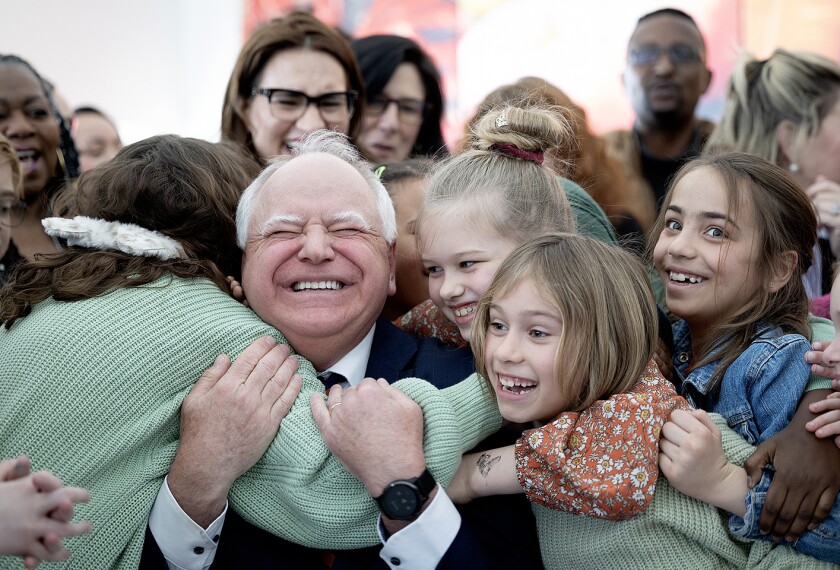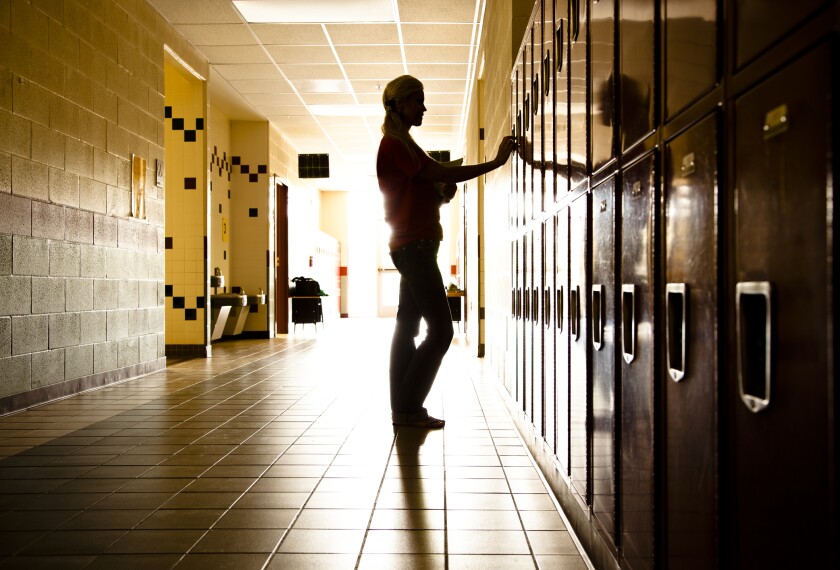A new academic year is starting. I sense that my professorial colleagues around the country are returning reluctantly. Higher education in the U.S. has slipped into economic difficulty, and I believe that the corporate culture that has infected higher education is making it hard for everyone to breathe.
I'm returning only because I don't know what else I can do. Autistic people are one of the most unemployed populations in the country, and I'm not confident that I can succeed in another profession.
Over a couple of decades, I've built a solid career as a college professor. Then my college changed, and the way in which autism manifests in me isn't compatible. So, half a career in academia may be all that I get.
I don't have autism. It isn't a disease that I picked up from a tropical swamp. I didn't "catch it" from someone else. I didn't "get it" from a vaccine. What we call autism came into the world with me, like brown eyes. It's part of my identity and character.
Pop culture is slowly shaking off the old Rainman stereotype. Michael Cera's character in Amy Schumer's Life & Beth offers a recent example of autistic people who just exist and do stuff in the autistic identity in which they're born.
The assemblage of my brain—call it the "wiring," if you like—shapes, how I experience the world and express myself. Your wiring does the same thing for you. If you are "neurotypical," then your experience and expression coincide nicely with those of a majority of other people. If you are autistic, your experience and expression don't coincide with a majority and might not coincide much with the experience and expression of other autistic people, either.
The crucial matter here is that the autistic person in a population will see things differently, will hear things differently, will sense things differently, and will think differently about all of the things that they are sensing. Everyone else might find the autistic person's experience and expression strange, or even implausible because the autistic person's experience is not available to them.
Maybe you can think of it this way. If you put 35 people on the top of a skyscraper, one of those thirty-five people who is likely to have acrophobia might freak out. That person will experience that height very differently from how the other 34 experience it, and that acrophobic person will express themself differently, too. You could tell the acrophobic person that their experience is all in their head. That's not wrong. But that's where your experience is, too.
My sensory experience isn't much different from neurotypical sensation. Many autistic people have a very difficult, and sometimes impossible, experience of lights and textures and odors, etc. If anything, I probably have a touch of hyposensitivity. At least, I'm inclined to chase after some intense sensations.
My experience with people is quite different. That is: the way that I experience human behavior does not, it seems, coincide well with the majority experience. Most of the time, I don't know what's going on. People around me meet and greet and talk to each other, and I recognize it all as meeting and greeting and talking. But it's all rather like watching cricket.
My friends in India have explained cricket to me. When I watch a cricket match, I recognize that people are flinging a ball and running around, but every so often a nearby spectator's spontaneous reaction to the play will remind me that I have no idea what's going on. If you know nothing about cricket, turn on a match and maybe you'll get some idea of how social behavior appears to me.
One might wonder how someone for whom common behavior is so opaque can be a college professor. As a matter of fact, colleges, generally, are very good environments for the most unemployed population in the country. Consider that a professor's professional success depends on sustained hyper-focus on narrow, and sometimes, obscure topics, and on being able to speak, ad nauseam, about those topics. I've had two Fulbright fellowships. I've published three books. I've helped a lot of other scholars get published. Being a professor can be an ideal situation for an autistic person.
Human behavior in a college classroom—at least, for the duration of a class period—does not proceed typically. Human classroom behavior proceeds according to certain rules on which I can rely. For that matter, as a professor, I can set some rules that help me better understand what's going on between people during class. Students in my classes are very accommodating.
The behavior of my professor colleagues, on the other hand, might as well be cricket. Perhaps I have an informed appreciation for the ways in which professorial behavior can baffle and even torment students because it baffles and torments me, too. Because my college is small, we can hold periodic meetings of our entire faculty. These meetings always sound to me like the teacher in the Peanuts cartoons.
Worst is the politics. One thing that contributes to their high unemployment is that autistic people are often completely blind to office politics. Being unable to see people maneuvering and jockeying, autistic people are unable to maneuver and jockey, themselves.
Because they can't see social pathways and pitfalls, autistic people often say what's true, rather than what's strategic. Autistic people often can't see the informal hierarchies that the social world puts together, which can enrage some people to whom autistic people don't simply defer. Autistic people are also the most bullied population in the country.
Office politics can debilitate autistic people. I don't mean that the maneuvering that people do in the workplace can disadvantage and exclude autistic people, although this is true. I mean that the "Game of Thrones" that happens in workplaces can limit an autistic person's human functionality. In the way that being on the top of a tall building can adversely affect an acrophobic person, social gamesmanship can significantly contribute to "autistic burnout."
Everybody experiences something that they can call burnout. This is one of the reasons that the word burnout isn't very useful for describing a distinctly autistic condition that is entirely different from the exhaustion and ennui that might be all too common across the workforce.
Autistic burnout can look very much like severe depression but can be brought on and sustained, in a cause-and-effect relationship, by physical and social environments. Autistic people can be immobilized by sensory overload. They can be incapacitated by impenetrable social circumstances.
The Americans with Disabilities Act expressly identifies autism as a protected disability, but the legal system fails to employ the ADA to protect autistic people in workplaces that prevent them from succeeding and that push them into burnout.
We can't see inside an acrophobic person and an acrophobic person can't show us how they experience the rooftop. An autistic person can't provide a Powerpoint slide show of their experience of a workplace's cruelty.
The legal burden that the system places on autistic people to show how their places of employment disable them, on the inside, is too great. That they can't find protection under the ADA contributes to the fact that autistic people are our most unemployed population and also the most suicidal by a large margin.
I got along quite well at my college for fifteen years, partly because we do have some written rules. Like most such institutions, my college has a "faculty handbook" that provides all of the rules and regulations for how things are done. While my colleagues have made "MAH-WAH-MAH-WAH" noises in our faculty meetings, I've had the faculty handbook as a convenient reference for how the game is played.
A few years ago, we stopped following the handbook. Not in a trivial way, but in a way that changed our academic program. I pointed out that we'd broken the rules. My colleagues were mostly silent. The administration was not happy—not that we'd broken the rules, but that I'd pointed it out. It's been a downhill slide since then. We continue to break the rules and the administration grows ever angrier with me for saying so.
I'm not a rules-for-rules-sake sort of person. I'm autistic. I depend on rules in a way that a person in a wheelchair might depend on ADA-compliant ramps. To access the community, I need to be able to see the rules that govern the community, and I need to know that those rules will operate like rules.
In a rules-for-rules-sake sort of way, my autistic brain can't fully function when rules are egregiously broken. When my college set aside its handbook, it pushed me into a state of autistic burnout. My interaction with my colleagues is limited. I'm a less effective teacher. Doing my own research is a greater challenge. My debilitation is not a psychological or emotional weakness any more than acrophobia is. My debilitation is the effect of my workplace on autism.
I've been in this state for a few years, now. It's made me a less happy human being and it's wrecking my health. My colleagues are returning to this new academic year under a cloud. Given the impact on my well-being, this may be the last return to school that I can do, even though my career as a professor is only half done.
David Mason is an associate professor at Rhodes College in Memphis, TN. He is a two-time Fulbright Fellow, the author of three books, and the editor of Ecumenica, a peer-reviewed journal from Penn State University Press. He posts autism-in-the-academy comics on Instagram, @myautismsqueeks, and is writing a book about his experience.
All views expressed are the author's own.
Do you have a unique experience or personal story to share? See our Reader Submissions Guide and then email the My Turn team at myturn@newsweek.com.
Disclaimer: The copyright of this article belongs to the original author. Reposting this article is solely for the purpose of information dissemination and does not constitute any investment advice. If there is any infringement, please contact us immediately. We will make corrections or deletions as necessary. Thank you.







